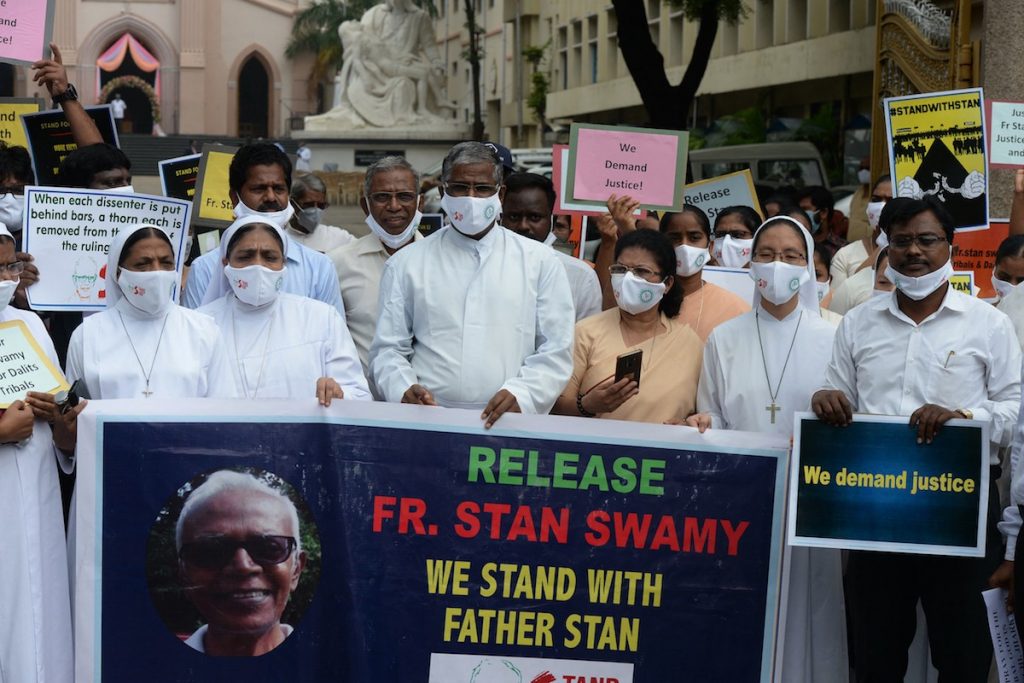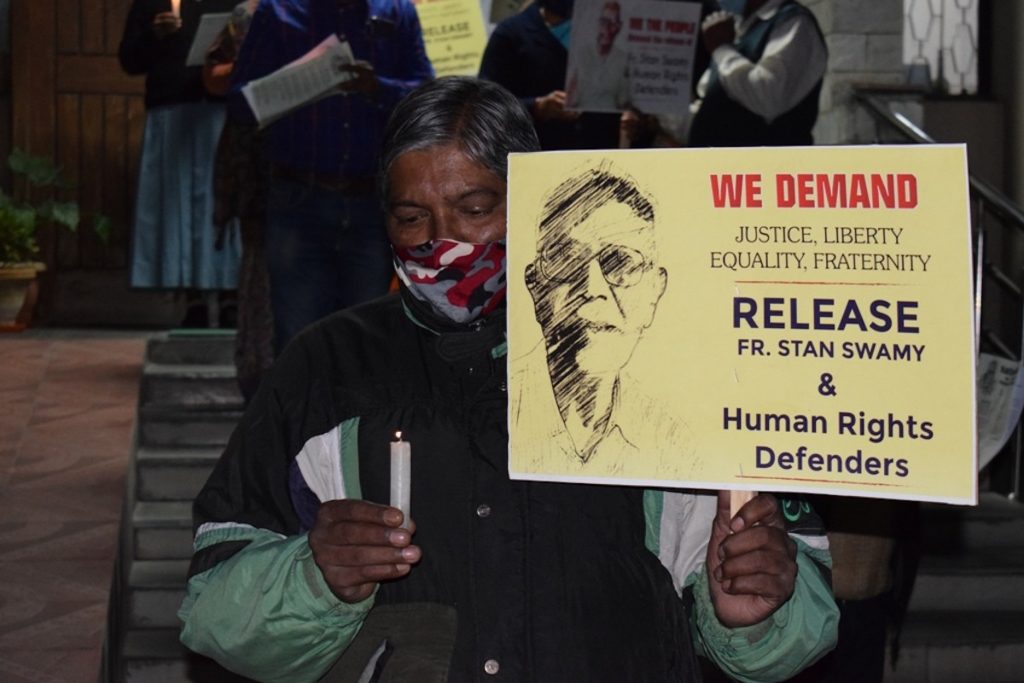
Indian Jesuit priest Stanislaus Lourduswamy, known as Stan Swamy, said he would “rather suffer” and “possibly die very shortly” if his appeal for freedom is not granted.
The 84-year old Jesuit submitted to the Bombay High Court on Friday, May 21, his appeal for interim bail, saying his health condition has been deteriorating since his detention in October last year.
The priest suffers from Parkinson’s disease, hearing impairment and other age-related illnesses.
“When I came here eight months ago, the core systems of my body were still functional. Since then, there has been a steady regression of my bodily functions,” the priest told the court via video conference.
“Eight months ago, I would eat by myself, could do some writing on my own, walk, take a bath, but these are disappearing one after another,” Father Swamy said from the Taloja Central Jail near Mumbai where he has been detained.
He refused the court’s suggestion to be shifted to state-run JJ Hospital, saying he did not want to be hospitalized there.
“I would rather suffer, possibly die here very shortly if things go on as it is,” he told the court, saying that it was a “difficult moment” for him.
The priest appeared before the High Court to seek interim bail after the special National Investigation Agency court rejected his plea for freedom.
When told that he should consider getting admitted to a hospital, the priest said he did not think it would make a difference. “Whatever happens to me, I would like to be with my own,” he said.
The Bombay High Court adjourned until June 7 but said Father Swamy can approach the court any time if he agrees to be hospitalized.
Lawyers have repeatedly appealed for the release of Father Swamy on humanitarian grounds.
In March, an Indian court refused to grant bail to Father Swamy, saying that the petition presented by the lawyers were “inadmissible.”
The priest, a known tribal rights activist, was arrested by India’s National Investigation Agency on Oct. 8, 2020.
He was living in Ranchi, capital of Jharkhand state in Eastern India, during the time of his arrest and was brought to Mumbai, about 1,750 km southwest.
He was placed in judicial custody in Taloja Central Jail near Mumbai after he was charged under various sections of the Indian Penal Code.

The priest was accused of terror-related offenses under the Unlawful Activities (Prevention) Act for allegedly furthering the cause of banned communist groups through his civil rights organizations.
Authorities tagged the priest’s Persecuted Political Prisoners Solidarity Committee, a human rights organization, as a front organization of Maoist and extremist groups.
The Bagaicha, an organization established by Father Swamy to empower the tribal group Adivbasis, was also tagged as a communist front.
Father Swamy is the oldest person in the country to face terror-related charges and he has joined 15 others including human rights activists, journalists and scholars arrested in connection to a 2018 incident of caste-based violence known locally as the Bhima Koregaon case.
The priest’s supporters said he is being branded as an anti-nationalist and was jailed because he was fighting for the implementation of laws passed by the parliament for tribal people and their constitutional rights.
On Oct. 26 last year, the Federation of Asian Bishops’ Conferences called for his immediate release; following a similar statement issued by Indian bishops.
India’s National Crime Records Bureau showed that as many as 5,922 people were held under the country’s Unlawful Activities (Prevention) Act between 2016-2019, with only 132 convictions.
The draconian law has come under severe criticism from international observers in recent years, as has India’s human rights record since the Bharatiya Janata Party came into power.
In a recent “Freedom in the World Report 2021” by Freedom House, the country was downgraded from “free” to “partly free” for the first time.
Source: Licas Philippines
0 Comments